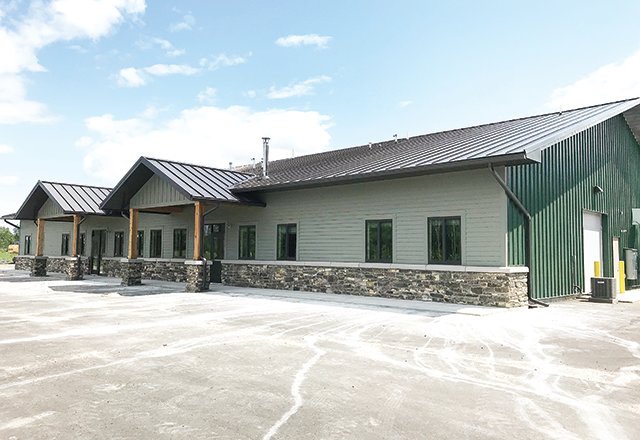Support the Timberjay by making a donation.
Ten states sue EPA over wood furnace testing
Minnesota among the ten
REGIONAL— Attorneys generals from ten states, including Minnesota, have filed a notice of intent to sue the U.S. Environmental Protection Agency over its failure to adequately manage an …
This item is available in full to subscribers.
Attention subscribers
To continue reading, you will need to either log in to your subscriber account, below, or purchase a new subscription.
Please log in to continue |
Ten states sue EPA over wood furnace testing
Minnesota among the ten
REGIONAL— Attorneys generals from ten states, including Minnesota, have filed a notice of intent to sue the U.S. Environmental Protection Agency over its failure to adequately manage an emissions standards program for wood-burning residential furnaces.
The claims in the lawsuit are consistent with the findings of the EPA’s Inspector General’s Office, which issued a blistering report on the program back in March, as reported in the Timberjay. The failures in the EPA’s program centered on inconsistent testing procedures, which the inspector general described as “dysfunctional.”
It’s a complaint that has been made for years by Tower-based Lamppa Manufacturing, which argues that they produce the only wood furnace in the country to actually meet the standards set by the EPA. Longtime company owner Daryl Lamppa has argued with EPA officials for years that they had certified a handful of furnaces produced by other manufacturers that had not actually met the testing criteria.
“If newer wood heaters do not meet cleaner standards, then programs to change out old wood heaters may provide little health benefits at significant public cost,” the states wrote July 6 in a 60-day notice of intent to sue.
The states that have joined the lawsuit include Minnesota, Alaska, Illinois, Maryland, Massachusetts, New Jersey, New York, Oregon, Vermont and Washington, as well as the Puget Sound Clean Air Agency. All of the states have adopted programs to improve air quality in regions where a significant number of residents use wood stoves for home heating.
While heating with wood can save homeowners a considerable amount of money, some types of wood burners are known to be hazardous to public health due to their emissions, which include extremely fine particulates, known as PM 2.5, as well as carbon monoxide and volatile organic compounds. The EPA estimates that the 340,000 tons of fine particulates emitted by wood-burning devices nationwide account for 10,000 to 40,000 excess deaths due to heart disease, lung cancer, and other ailments. Wood furnaces are larger wood-burning devices that typically replace a forced air furnace and are designed to heat an entire home.
The EPA under the Obama administration set strict new rules to try to control emissions and used federal dollars to encourage homeowners to install furnaces that showed they could meet those emissions standards. Many states also invested money into incentives, but now their lawsuit is expected to argue that those investments have failed to improve air quality due to the failures of the EPA’s testing program.
The EPA Inspector General is likely to provide powerful evidence for that claim. “Flawed test methods and a lack of EPA oversight of the wood heater program have created uncertainty for states,” wrote the inspector general in the office’s report, issued Feb. 28, 2023. “State regulators from Alaska and California said that they are concerned about relying on the EPA’s certification process to identify wood heaters to sell in their states or for their changeout programs.”
The EPA supports programs aimed at replacing older, dirtier wood heaters with newer, cleaner models and distributed about $82 million in grants for residential exchanges between fiscal years 2015 and 2021, according to the Inspector General.
“However, if the replacement models do not meet emission standards because of the reasons described above, millions of federal, state, and local dollars could be wasted,” noted the inspector general.
According to the Associated Press, the states contend that the EPA’s errors have allowed the sale of some wood furnaces to continue, and buyers to receive tax incentives, even though the furnaces in question may not actually improve air quality. “If newer wood heaters do not meet cleaner standards, then programs to change out old wood heaters may provide little health benefits at significant public cost,” the states contend.






